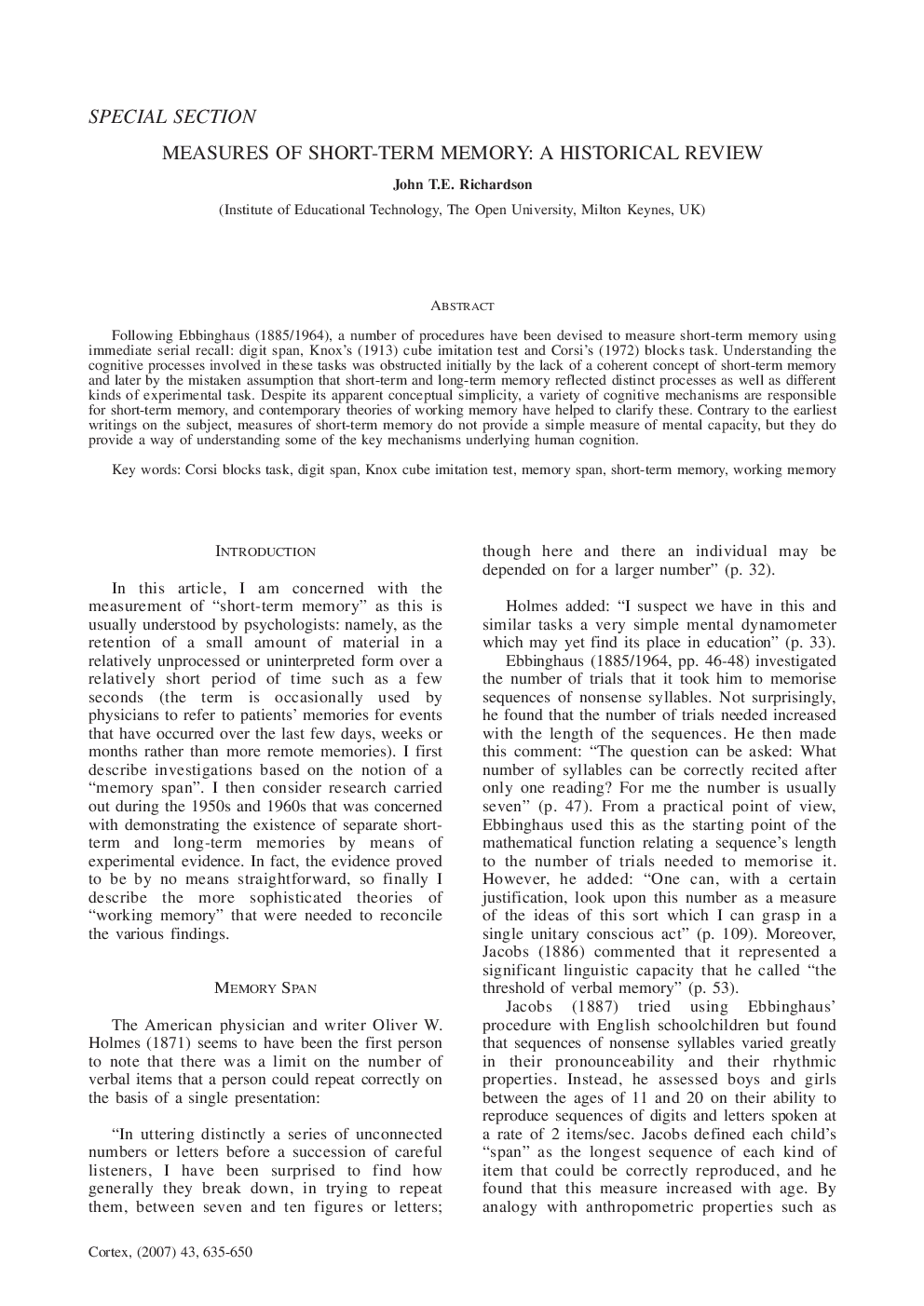| Article ID | Journal | Published Year | Pages | File Type |
|---|---|---|---|---|
| 942783 | Cortex | 2007 | 16 Pages |
Following Ebbinghaus (1885/1964), a number of procedures have been devised to measure short-term memory using immediate serial recall: digit span, Knox's (1913) cube imitation test and Corsi's (1972) blocks task. Understanding the cognitive processes involved in these tasks was obstructed initially by the lack of a coherent concept of short-term memory and later by the mistaken assumption that short-term and long-term memory reflected distinct processes as well as different kinds of experimental task. Despite its apparent conceptual simplicity, a variety of cognitive mechanisms are responsible for short-term memory, and contemporary theories of working memory have helped to clarify these. Contrary to the earliest writings on the subject, measures of short-term memory do not provide a simple measure of mental capacity, but they do provide a way of understanding some of the key mechanisms underlying human cognition.
